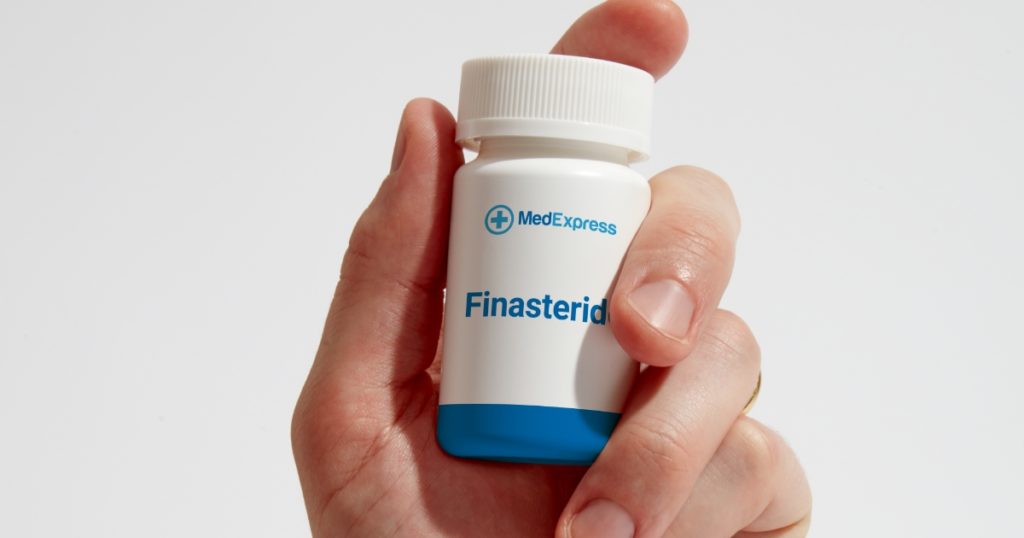Looking for ways to keep your scalp healthy and prevent hair loss? Prescription treatments can slow down loss of hair and even regrow it, but certain lifestyle changes can also help you keep your hair in its best condition.
We spoke to Dr Mia Jing Gao, a Consultant Dermatologist who specialises in hair loss and scalp conditions, to find out her lifestyle advice for hair loss prevention. Here are five of her top tips.
Eat enough iron
Dr Mia suggests, “If you have low iron levels, I’d recommend supplementing that with high iron foods.”
Iron is important for healthy hair, as a deficiency can lead to excessive shedding. Why does this happen? When your body is low in iron, it can stop sending oxygen to your hair follicles and strip iron proteins from your hair strands. This helps to keep your vital organs healthy, but can also cause hair to fall out or ‘shed’.
Concerned about low iron levels? You can increase your intake by eating foods like leafy greens, nuts and red meat. Other symptoms of iron deficiency to look out for include tiredness, low energy, shortness of breath and heart palpitations.

If you smoke, try to quit
Smoking can impact your hair growth in many ways, and some research shows it may even increase hair loss. That’s because it puts ‘oxidative stress’ on your body, which can cause your hairs to detach from the follicles, making them shed. Oxygen-rich blood is also essential for healthy hair follicles, and since smoking can have a negative effect on your circulation, it can be harder for blood and nutrients to get to your scalp.
Cutting out cigarettes will help your follicles stay healthy and continue to grow new hairs. Need help quitting? Try a nicotine-free treatment to help you stop.
Look for ways to reduce stress
Stress can also be a contributing factor. It’s linked to a specific type of hair loss called telogen effluvium, which happens when your hairs suddenly start to shed after a stressful event. Your hair thins evenly all over your scalp, and although it’s temporary, it can take months for your hair to grow back to its usual density and length.
You can’t prevent or stop a telogen effluvium episode, but since significant anxiety is a trigger, it’s important to take care of your mental health when you experience prolonged stress. Dr Mia also points out, “stress does lots of things to our body. It increases cortisol and adrenaline which can trigger inflammatory skin conditions like eczema and psoriasis.” Scalp inflammation can add to the risk of hair loss, which makes reducing your stress levels even more crucial for good hair health.

To reduce everyday stress, relaxation techniques like meditation and deep breathing can provide you with emotional relief, and exercise can help boost your mood. If you’re struggling with your mental health long-term, reach out to your GP and they’ll talk you through any extra support that could help.
Be gentle with your scalp
A healthy scalp is vital for healthy hair, so here are some ways to take good care of it.
“If you have a sensitive scalp, I advise using a sulphate-free shampoo,” says Dr Mia, adding, “there’s no evidence that parabens or silicones are harmful, so there’s no need to avoid them unless you know you’re allergic.”
Being allergic or sensitive to certain ingredients in shampoo can cause dermatitis on your scalp, which can also contribute to hair shedding or hair loss. It’s also important to make sure you aren’t putting too much traction (pulling or friction) on your roots. “Hairstyles that are tight on the hair, such as braids, can actually cause scarring hair loss,” says Dr Mia. Scarring hair loss is caused by inflammation, which damages your follicles and replaces them with scar tissue. This happens gradually, and can be permanent.
When in doubt, wash your hair with a hypoallergenic shampoo and wear it in a gentle, loose hairstyle to keep your scalp clean and healthy.
Try a hair loss treatment

Some prescription medications are clinically proven to treat hair loss, and even help hair grow back where it’s already thinned. Oral treatments like finasteride can stop hair loss and support regrowth by preventing shrinkage of your hair follicles, and topical solutions like minoxidil can stimulate your follicles to grow new hairs.
Interested in starting treatment for hair loss? Start a free online consultation today and get it delivered straight to your door.
